Manufacturers still face hiring issues in Lebanon County
Over a Dozen Manufacturers, workforce developers and lawmakers gathered at Lebanon Valley Economic Development Corporation Friday morning for a small breakfast and discussion, followed by tours of some of the manufacturing facilitates that populate the Lebanon Valley Business Park. It was all part of manufacturing week.
Susan Eberly, president of Lebanon Valley Economic Development Corporation, started off the discussion by asking different manufacturers in the room how they have been fairing with hiring and employment recently.
Many of them agreed that while it has become somewhat easier to fill positions now than it has been in recent memory, many were still facing workforce shortages of some kind, with particular concern with retaining employees in entry-level positions.
John Wengert of Swiss Premium Dairy described a revolving door scenario, with at least 2-3 positions always being open, despite being positions that pay $26 an hour.
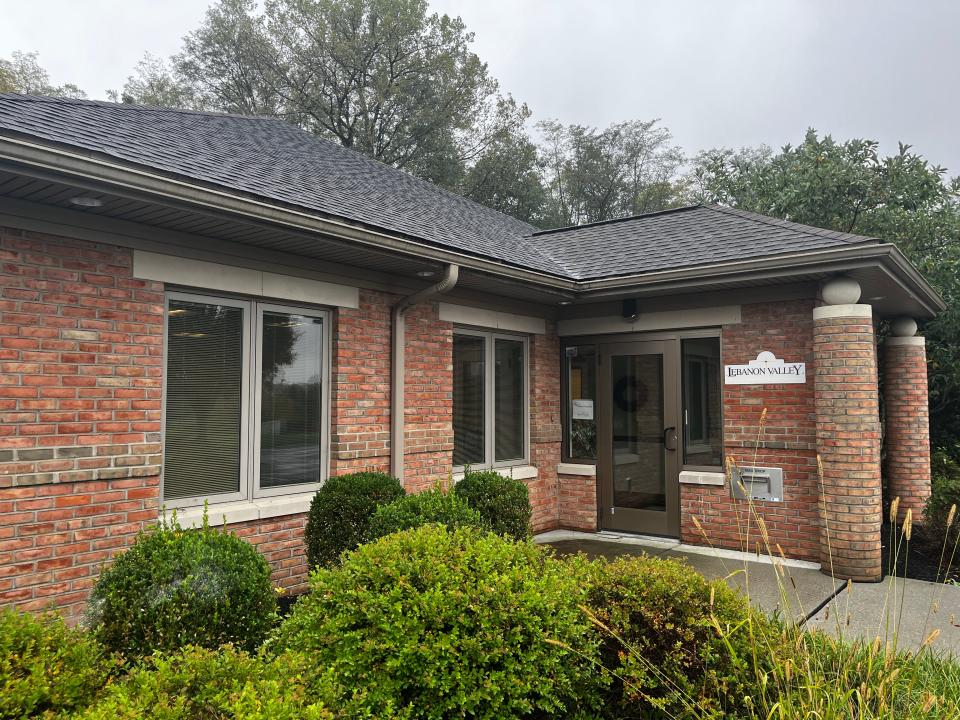
Other manufacturers expressed mutual frustration with spending money on recruitment and training for new employees, just to have to do it all over again a month later because their new hire left.
Julie Vincente, superintendent of Eastern Lebanon County School District, introduced to the group to Jennifer Martin, Future Ready Facilitator at ELCO, a new position created at the district with aims of bridging the connection between local employers and the district, specifically focused on learning the needs of those employers and how the district can better prepare students for the future.
Vincente also mentioned that the district's new STEM and Agriculture spaces, expected to have their grand openings later this month, will help to develop a workforce of young people already equipped with the technical skill needed throughout the community.
WEPA Founder Rafael Torres and Executive Director Kay Litman discussed with the group how WEPA has helped place people in jobs since they had their soft opening in August, as well as future plans to hold workforce training and development classes, teaching community members not just the technical skills needed to get hired in a certain position, but how to enter and succeed in the workforce.
Another issue that manufactures discussed was that many new employees, especially those in the younger generations, don't possess the "soft-skills" such as timeliness and work ethic required to keep or be successful in their roles.
LeAnn Boos, who owns BQC Foundry with her husband, described two recently graduated new hires in her facility, one who attended a program at the LCTCC, who appeared to not have any drive to work whatsoever. The other, who had no work experience to speak of, attended his work orientation with his grandfather because he had no idea what to do and soon left the job.
Eberly prodded the group to find solutions to this problem, with the group finding some consensus in the idea that it's an issue that begins at home.
Torres, who recently screened the first look at WEPA's movie "Our Grandmothers Voices," which explores the lives and lessons of several grandmothers who live in Lebanon, agreed that it is an issue that begins at home, which he and his wife and founder of WEPA, Maribel Torres, had seen first hand during her time as a social worker with the Lebanon School District.
He explained the importance of WEPA's work with community ambassadors, often times grandparents, who are often able to reach the youth and instill those virtues.
The group also discussed during the breakfast:
The need for English language and Spanish language training.
The positive and negative aspects of countywide warehouse growth.
Looming impact of a population of employees who are going to age out of the workforce.
Continued need to strengthen ties between the workforce developers and manufacturing industry.
Developing workforce culture.
Manufacturing tour with LaserFab
Following the breakfast, the group separated into three for tours of different manufacturing facilities on the Lebanon Valley Business Park campus.
Laserfab, which specializes in laser cutting and bending of sheet metal, has been in the park since 2004 and has seen considerable growth in its business in the last two decades.
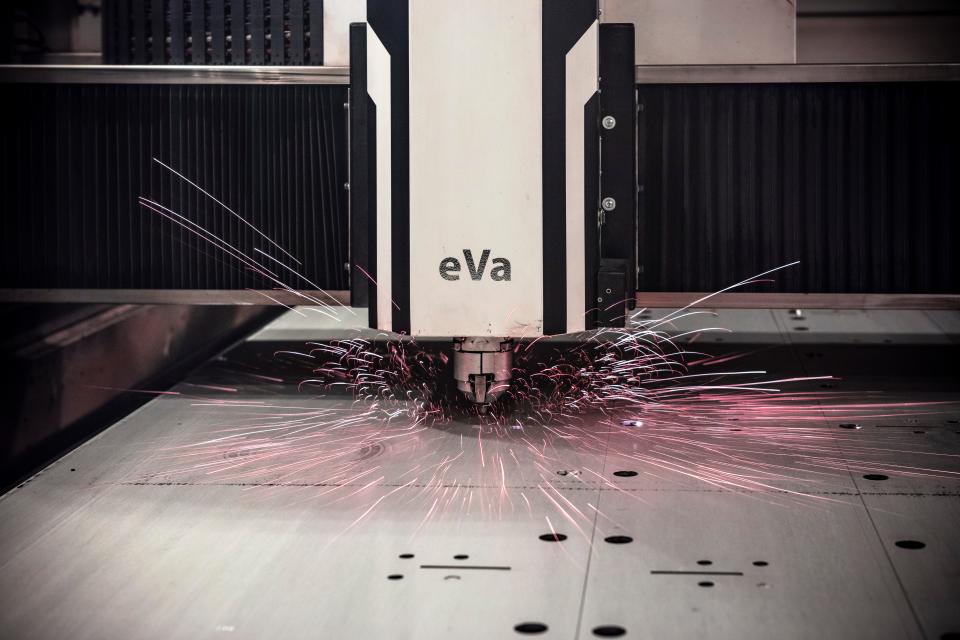
The company fabricates pieces for all kinds of businesses, including original equipment manufacturers, humidity control for server rooms, chemical mixing and the marine industry.
With 26 employees, Laserfab processed more than 6 million pounds of steel, stainless steel and aluminum last year.
Co-owner of Laserfab Dain Zimmerman said that while work has slowed up somewhat this year, the previous two years have been the company's biggest ever.
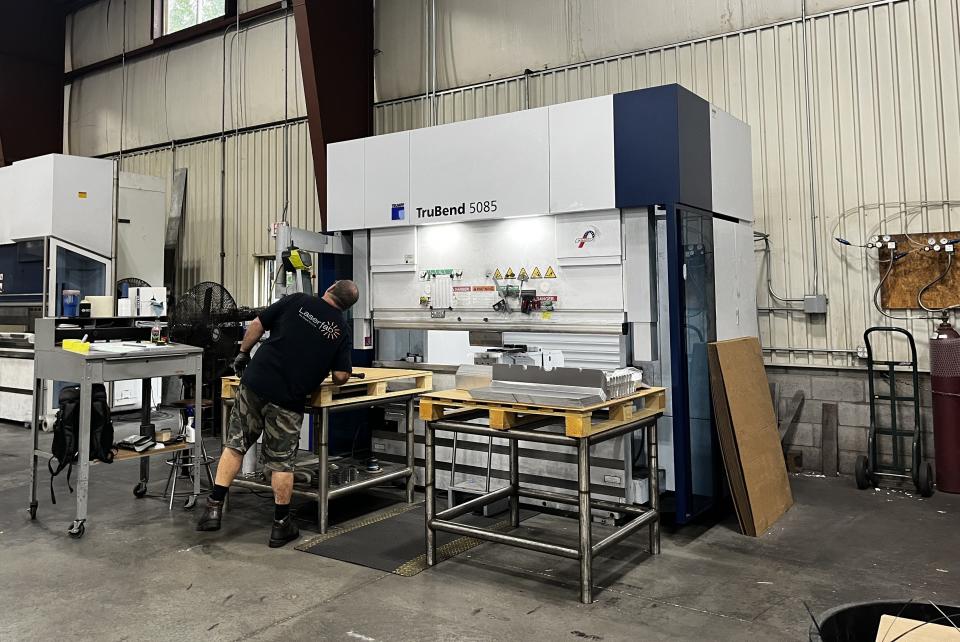
The business will soon break ground on its second expansion, approximately 6,700 square feet in size, allowing for additional capacity.
Laser cutting is a relatively new technology, becoming widely available for industrial use since 1990s. Zimmerman's father, Leon, who had been in metal fabrication since the 1980s, was an early adopter of the technology, buying a machine around 1995 while producing hog feeders in his previous business.
As word got out that there was a laser cutter in Lebanon County, local businesses and farmers would approach him asking for custom cut parts, and soon after, LaserFab was born.
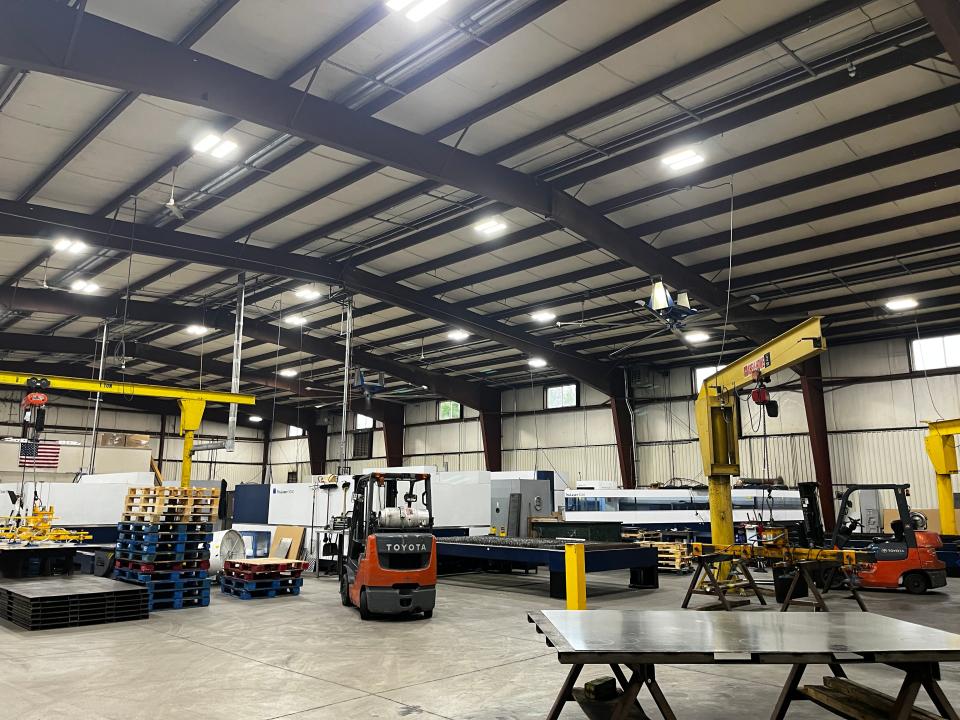
Each laser cutter, sourced from Germany, Austria and Poland, costs over $1 million. LaserFab now owns five and will likely be buying a sixth sometime after the expansion.
Part of what has kept the business so successful, Zimmerman said, is a willingness to take on any sized project whether it be a single, specially cut piece of metal with a specific use or a large contract requiring thousands of pieces to be made over time.
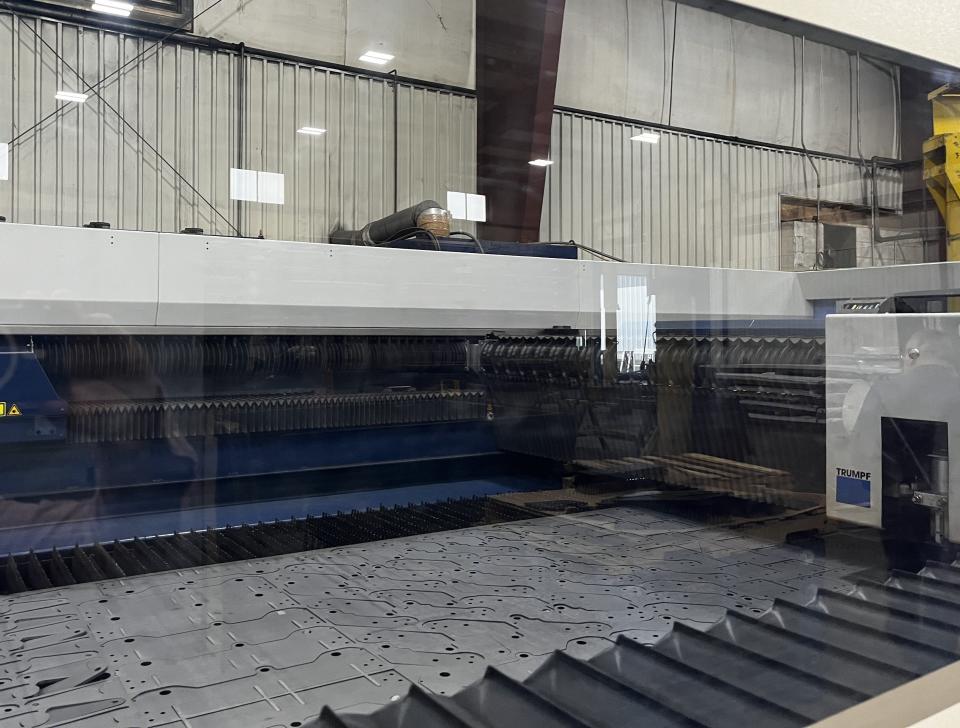
Roughly 85% of its businesses is sold in the mid-Atlantic region. The company also delivers products within a 100-mile radius, within Pennsylvania.
Their largest customer, Zimmerman said, is 11% of their work, which is small compared to competitors who mainly focus on large contract work.
"I think the reason we have steadiness for the most part, now this year's been an exception, is because we can serve small, medium and large, and we don't ever want to shy away from that," Zimmerman said.
Daniel Larlham Jr. is a reporter for the Lebanon Daily News. Reach him at DLarlham@LDNews.com or on X @djlarlham.
This article originally appeared on Lebanon Daily News: LVEDC hosts tours, breakfast discussion for manufacturing week

